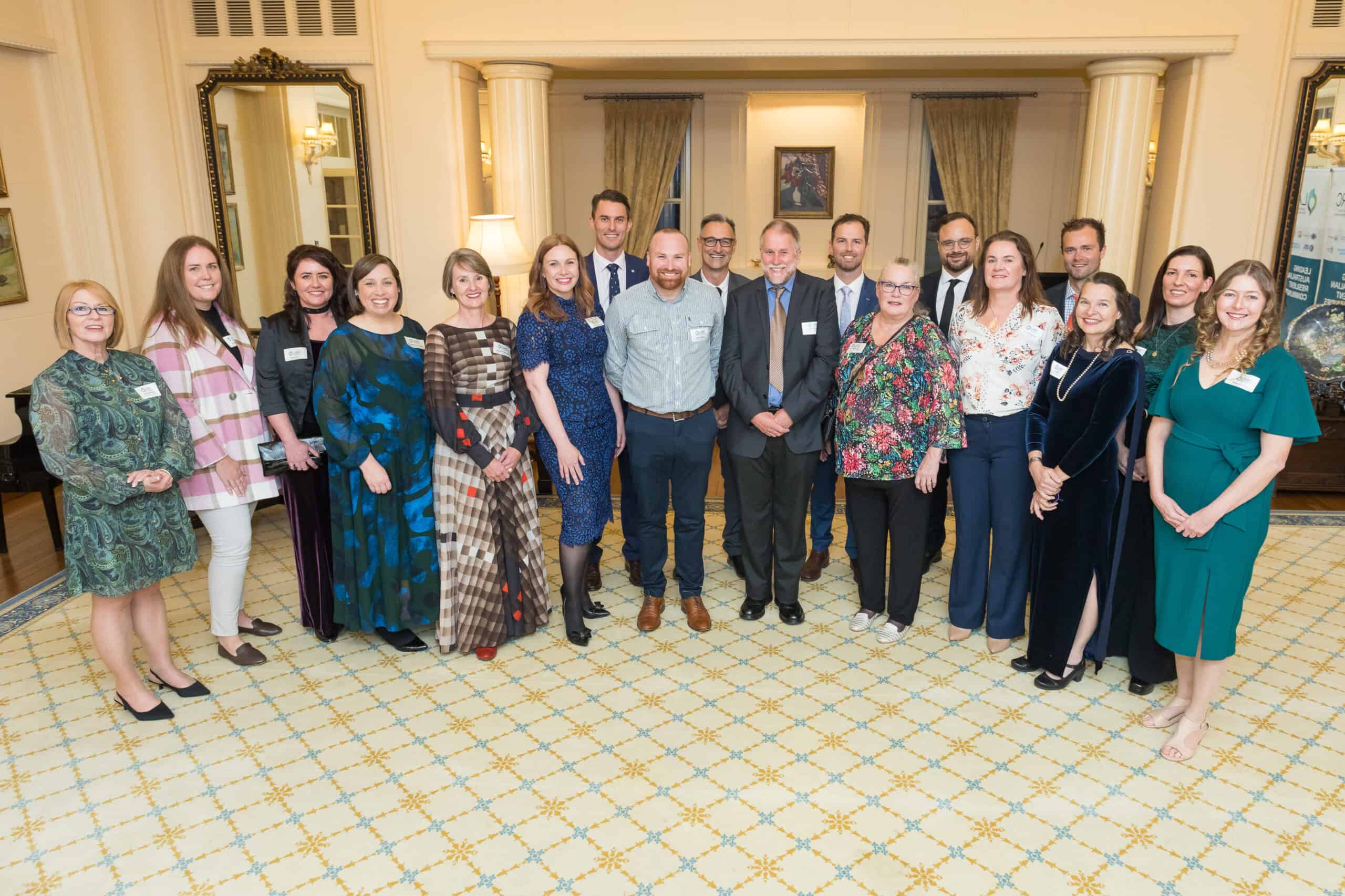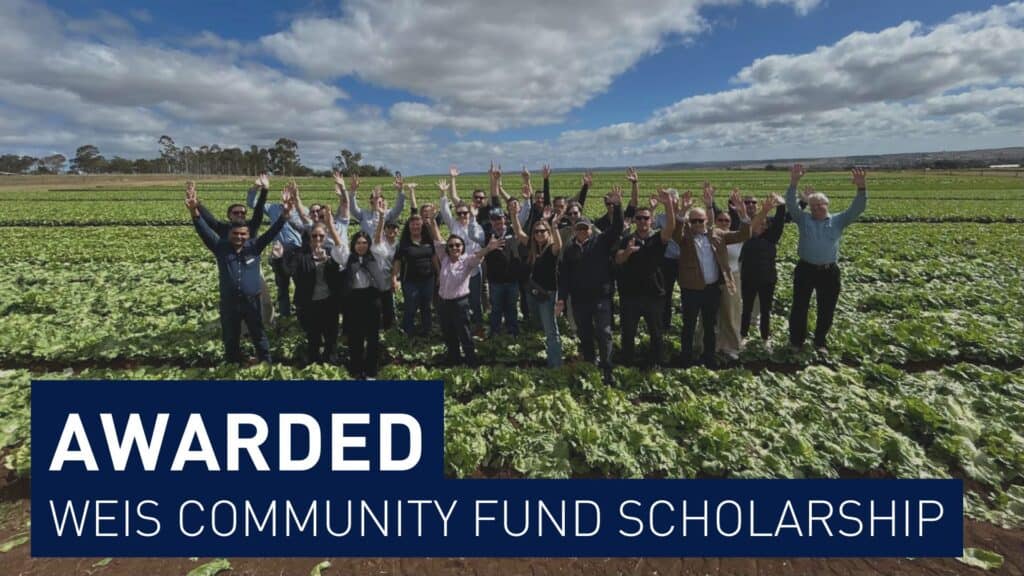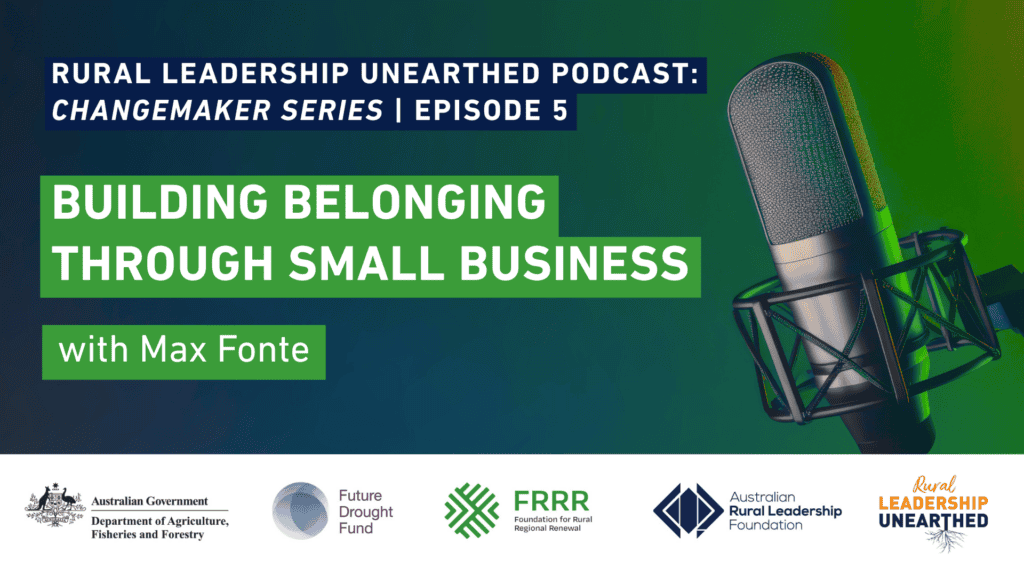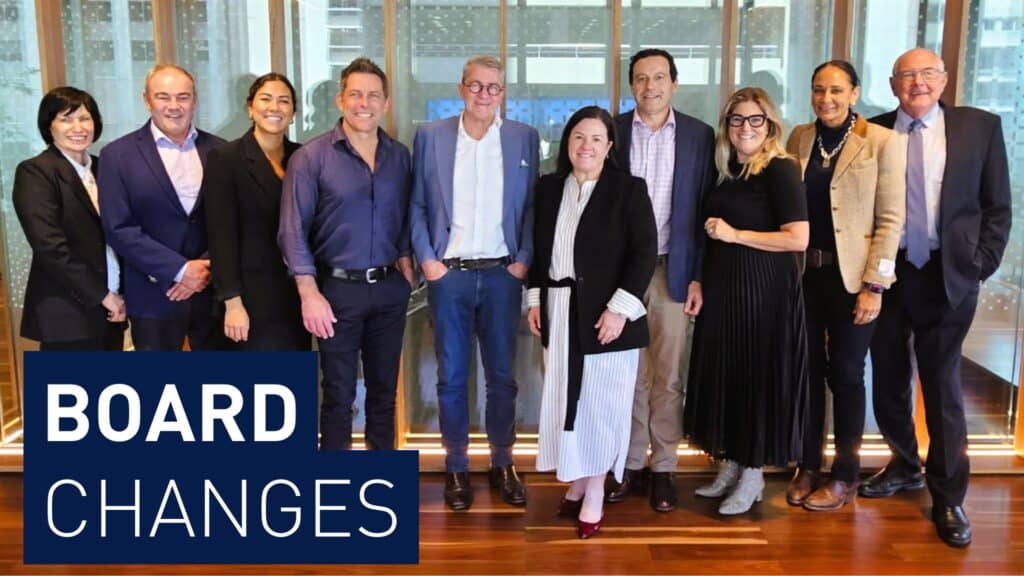The Leading Australian Resilient Communities (LARC) program, which focused on building leadership skills through a local lens, last week celebrated 12 months of success, and impact across the country.
The program – a collaboration between the Australian Rural Leadership Foundation (ARLF), the Regional Australia Institute (RAI) and state partners Leadership Victoria, Leadership WA, Leaders Institute of SA and Tasmanian Leaders – equipped more in than 230 participants with the knowledge, skills and resources necessary to navigate and grow in the face of challenges and uncertainties in their communities.
They came from 10 regions across the country identified for the challenges endured including natural disasters such as flood, bushfires, drought and cyclones, enduring impacts of the pandemic, and social issues such as isolation, youth unemployment, crime, workforce and housing shortages and the rising cost of living.
By providing practical tools, expert guidance and a collaborative environment, the program instilled a commitment to collective action, focused on building resilience within regional communities and seizing opportunities for sustainable growth.
This was evident when alumni from each region shared the experience and impact of their cohort at the national event in Canberra, and expanded their collective efforts further among each other – taking their collaborative network from a regional to national level.
Case studies showcase program impacts
Whilst community action initiatives were an important part of the program, most participants experienced growth in their own confidence and leadership skills, empowering them to work collaboratively to address local community issues.
Andrew Hannaford, a rural banking professional from Wagga Wagga NSW, worked with his group to address the digital divide between country and city, ensuring it’s prioritised in future regional planning.
“The most tangible skill I gained was an appreciation of the importance of listening, and the true need to hear all voices in a room, big and small,” he says.
Engaging with broader sections of the community and truly listening was the focus of Ellie Tonkin’s group project.
“I am feeling more empowered to push for change through the platforms I have access to and to put myself forward to seed further growth,” the marketing manager from Bundaberg, Qld, shares.
Finding common ground in a community in crisis cannot be understated for Tania Kells, a Connect Officer living in Alice Springs NT. The LARC program helped existing leaders in the region forge a stronger connection through collaboration. Focusing on youth services and youth crime, Tania will leverage her network to bring Indigenous and non- Indigenous people together.
“The best thing about LARC for us was that we all had different backgrounds and we just merged. Having strong networks in Alice Springs helps us all. We had consensus. We weren’t at odds,” Tania reflects.
ARLF CEO Matt Linnegar says the program was an overwhelming success.
“The LARC program has proven to be a transformative initiative that has empowered communities across the nation. Through collaboration and knowledge-sharing, participants have not only enhanced their personal resilience but built stronger, more united communities.”
RAI CEO Liz Ritchie adds the LARC program serves as a testament to the power of community engagement and collaboration.
“By equipping communities with the necessary tools, knowledge and support, the program has strengthened these local leaders’ ability to adapt, respond, and thrive in the face of diverse challenges.”
It’s hoped the outcomes of LARC continues across rural, regional and remote Australia should the Australian Government’s $5 million Building Resilient Regional Leaders Initiative (Pilot) becomes an ongoing commitment.





